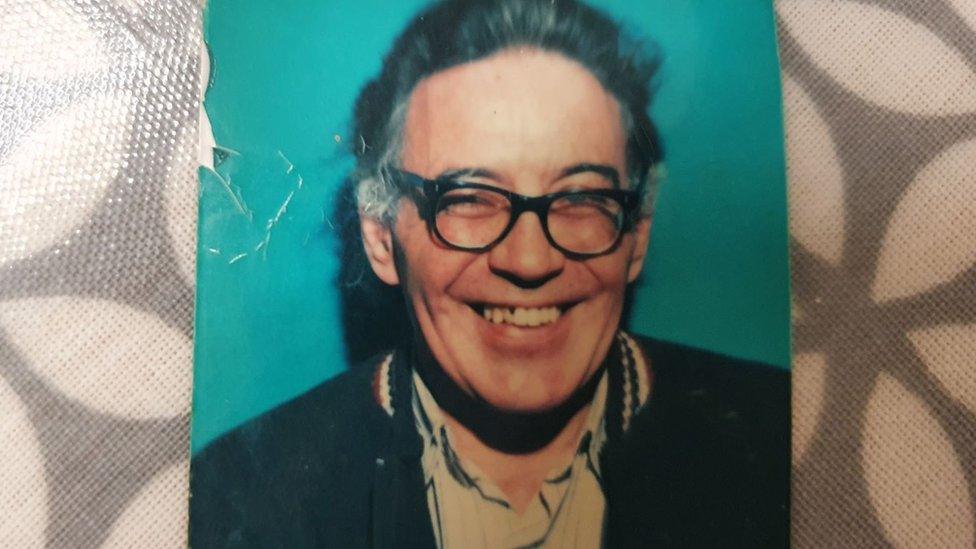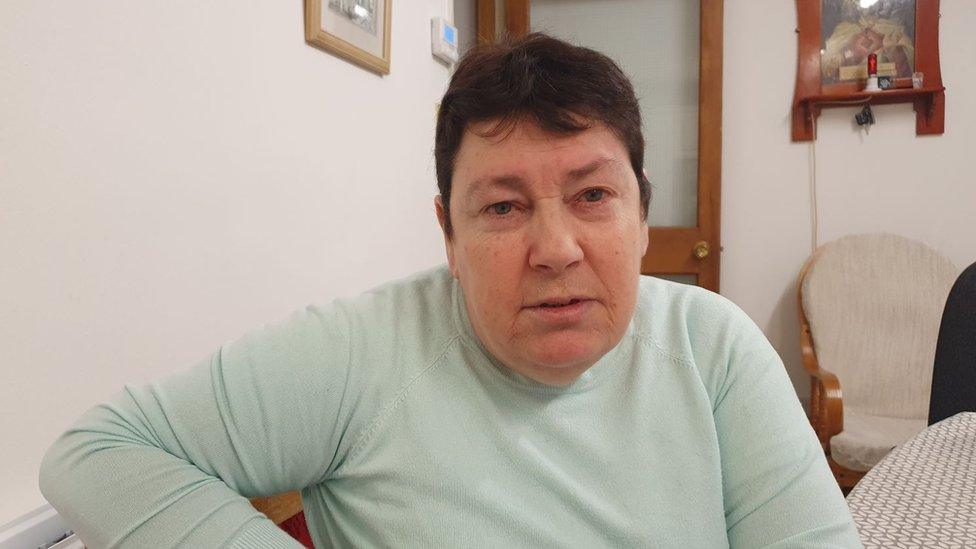Patrick Duffy: Inquest into death of IRA man shot by Army stopped
- Published

Patrick Duffy was shot by an undercover Army unit in 1978
The daughter of an IRA man killed by the Army in Londonderry in 1978 has said she is "sickened to the core" that delays by the Ministry of Defence (MoD) mean the inquest into his death cannot continue.
Patrick 'Patsy' Duffy was shot 14 times by undercover soldiers.
The coroner Fiona Bagnall said it would not proceed after a new legacy law.
That is because the MoD said it could not complete the sensitive discovery process before 1 May 2024.
This is the date when ongoing Troubles-related inquests must be concluded as part of the UK government's controversial legacy law.
The coroner's ruling stated that Lucy Ahad, deputy director for judicial engagement policy in the MoD, said the time to complete the work for Mr Duffy's case "stretched to July because of the volume of work faced by the MoD at this time".
His daughter, Martina, told BBC Radio Foyle's North West Today she was "sickened to the core and the MoD should be ashamed of themselves".
"I miss my dad every day," she continued.
"He was a kind, funny and loveable father. Yes he was an auxiliary member of the IRA, we have always been upfront about that, but it did not give those soldiers the right to take his life that day."
A fresh inquest into Patrick Duffy's death was granted in March 2019 and has had 13 hearings to date.
Opposed by Northern Ireland's political parties and victims' groups, the government said the legacy act would help to draw a line under the events of the past.
It also offered a conditional amnesty to those accused of killings during the Troubles.
It was previously said in court that the house Mr Duffy was entering in Maureen Avenue, where he was killed, had ammunition and bomb-making equipment inside.
"He was unarmed and they fired 14 bullets through my father," Martina Duffy said.
"They could've wounded him if they wanted to, but no."

Martina Duffy said justice for her family would be in an inquest
"I am sorely disappointed with the coroner's decision. How is there only one person to deal with this volume of work in the MoD? It's an absolute farce. It's not good enough and we are not letting this go."
"Get it finished," she added.
There are 28 legacy inquests currently in the judicial system that have been assigned to a judge or coroner. Of these, 18 inquests have started and are at hearing stage.
Three inquests have not yet started and are listed to be heard in February and March.
Seven inquests have been allocated to a judge or coroner but are not yet listed to be heard.


There are legacy inquests which are in the system that we know will not meet that May deadline for completion.
It is therefore very likely, almost certain, that we will see more and more families, like the Duffy family, experience situations like this.
A major issue with legacy cases is that they are centred on events from 40 or 50 years ago.
The sheer amount of time that has passed from events to now poses challenges in tracking down evidence and material documentation within the system.
The MoD, like other state agencies, are also facing a huge workload, but it is striking and perhaps arguably odd that there is only one individual handling these cases.

'It is insulting'
Patricia Coyle, a solicitor for the family, said: "It is beyond credulity that the MoD have only one person completing this work for all inquests in Northern Ireland when the courts have expanded their resources to conclude those granted.
"It is insulting, not only to our clients but to the rule of law, that having had four years to complete this work, now come to the court to claim they cannot complete it until two months after the legacy deadline."
On 16 January, lawyers for the family also lodged an application to the European Court of Human Rights at Strasbourg challenging the provisions of the Legacy Act 2023.
'Fully co-operating'
Regarding Patsy Duffy's case, an MoD spokesperson told BBC News NI: "We are fully co-operating with this inquest and a Ministry of Defence representative attended a court hearing on 19 January to provide information on what resourcing can assist the coroner in deciding whether the proceedings can be completed before 1 May 2024.
"As these legal proceedings are ongoing, it would be inappropriate to comment further on this matter."
A spokesperson from the Northern Ireland Office said the UK government's primary focus "has always been to establish one effective legacy body focused on providing better outcomes for families".
Previously, Northern Ireland Secretary Chris Heaton-Harris said there was "never going to be a perfect solution to this particular problem because no perfect solution exists".